After spending the night, we pack our things, get in the car, and head out. As the crow flies, it's not far: less than two hours. But driving straight isn't part of our plans: we didn't come to Greece to drive from point A to point B.
First, we'll stop at Acrocorinth. "Acro"“ means something like "elevation"“, so "Acrocorinth" refers to the elevation above Corinth. Just as "acropolis" refers to the elevation above the city. The ancient Greeks—both the Mycenaean culture and the later Hellenes—almost always built their cities near acropolis fortresses. The Minoan culture, however, did not construct fortifications on Crete: their palaces are believed to have served administrative and religious functions, but not military ones. They began building fortifications shortly before the collapse of their civilization, sometime in the 15th century BC.
Acrocorinth It stands on a fairly high mountain—it takes us about 15 minutes to get there by car. At the top is an impressive fortress. However, most of the fortifications are not Mycenaean, but rather Venetian and Turkish: the fortress controlled the important Isthmus of Corinth, so the walls and bastions were rebuilt more than once to meet the latest fortification requirements.
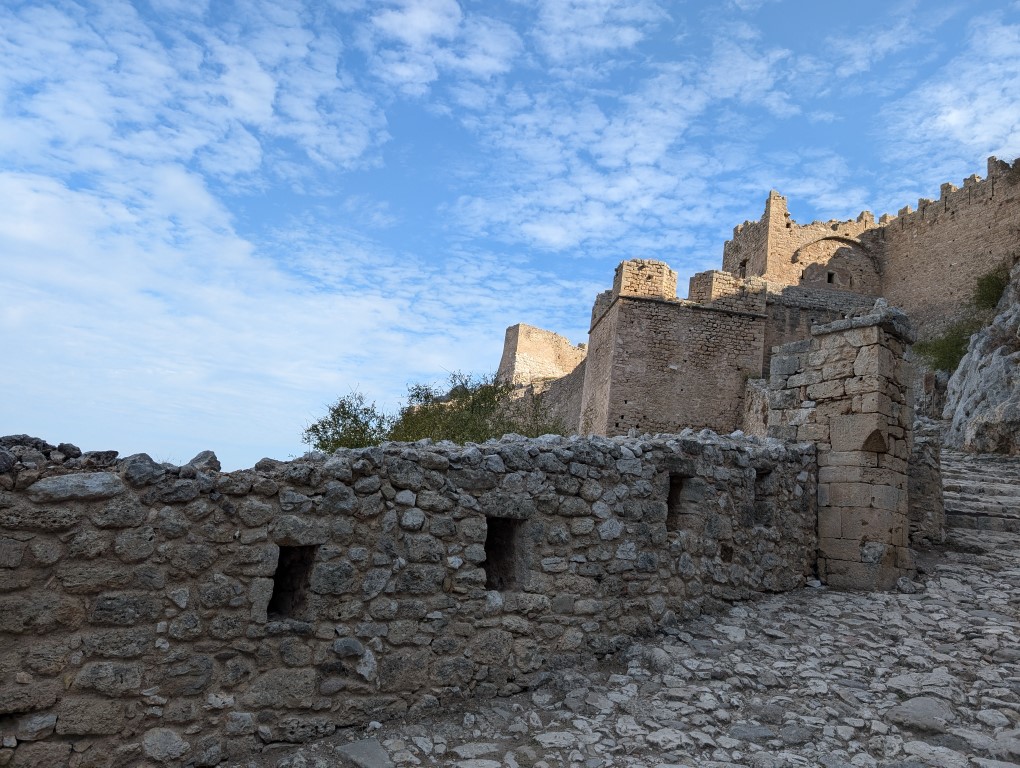
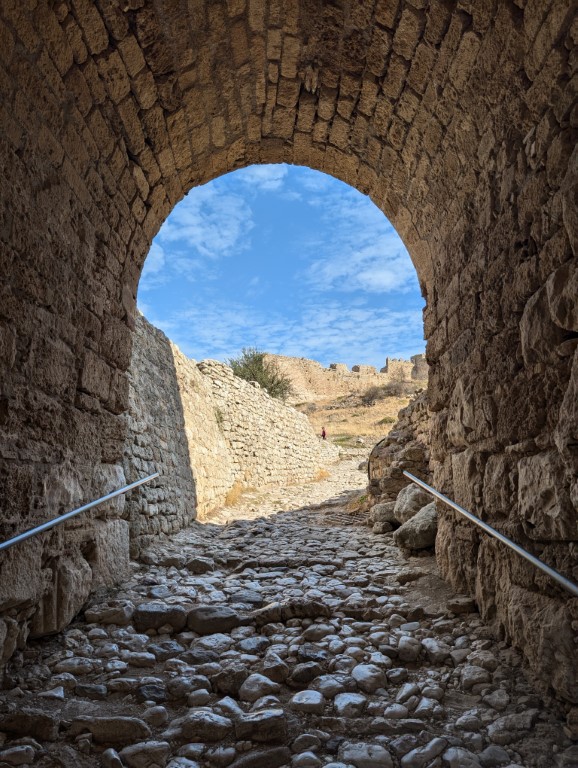
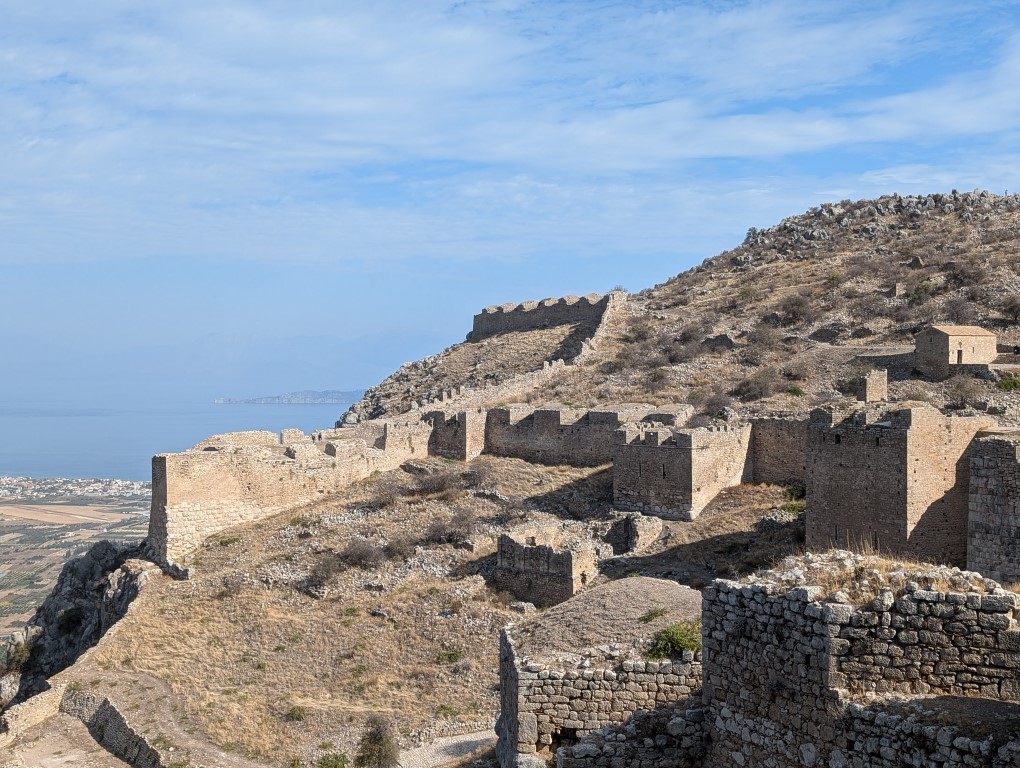
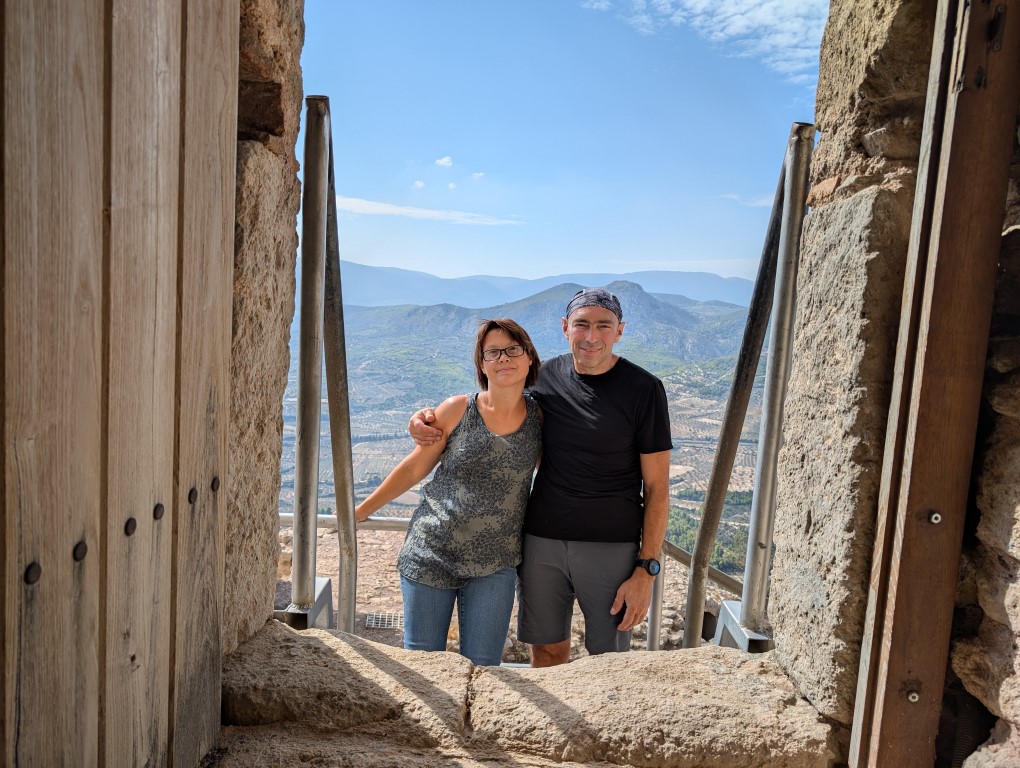
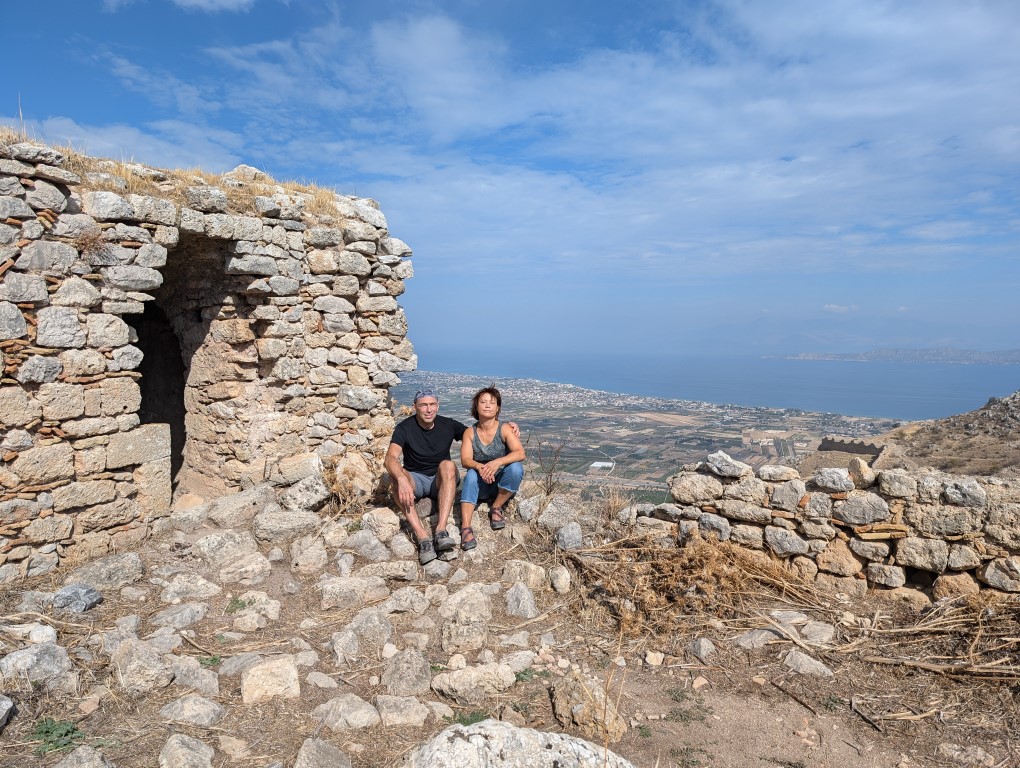
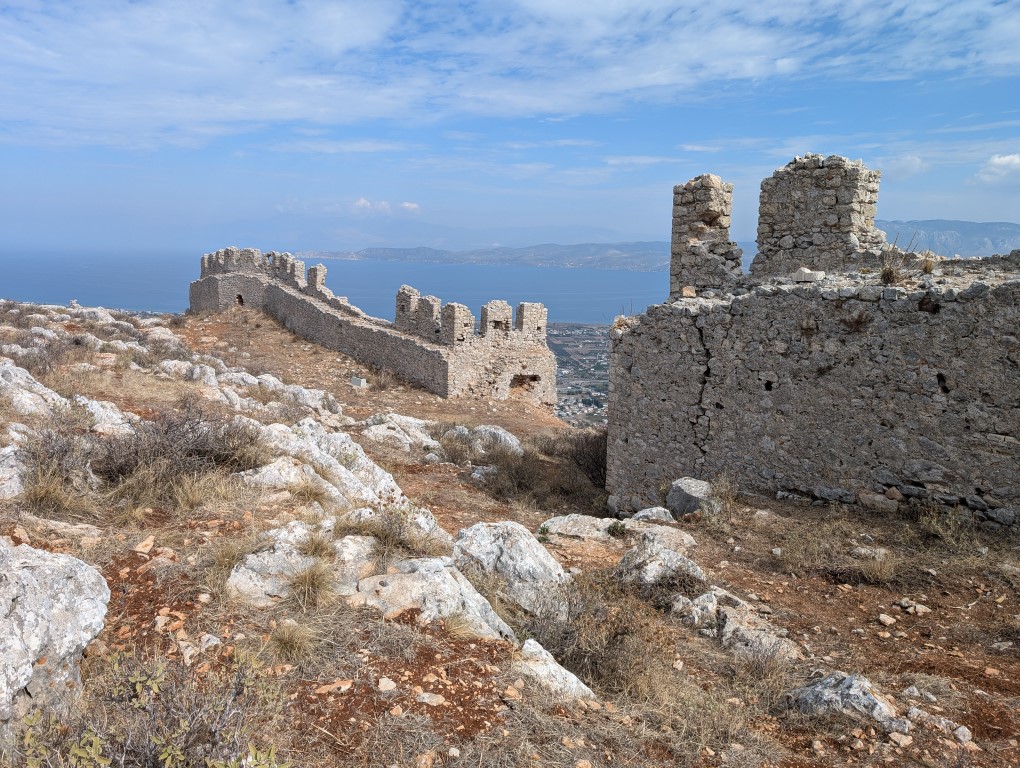
Now there are dusty rocks, dry grass, turtles and a small number of tourists: apparently, Greece has so many archaeological reserves that there are not enough for all the tourists.
At the top, we met two girls from Belarus. Or rather, they approached us when they heard Russian and asked for a ride down to the bus stop for our return trip. I admired their courage: they had come to Greece with an organized group, and on a free day, instead of lounging on the beach, they took a regular bus and went to see the fortress. Despite their limited English, and, it seemed to me, they had a lot of money. Incidentally, they had hiked up the mountain, which earned me genuine respect—it's a long and steep climb.
We still wanted to go towards their hotel to see the Corinth Canal, so we agreed to meet downstairs in the parking lot.
Having explored the fortress to our heart's content, we pick up the girls and head down. But first, we want to stop in ancient Corinth itself. Unlike modern Corinth, it's not located on the seashore, but about 10 kilometers away, beneath the fortress-like mountain. Apparently, in those days, the defense of the fortress was more important than the nearby beach.
Corinth Canal, Incidentally, it can be considered the oldest long-term construction project in the world. The first mention of an attempt to build it dates back to the 7th century BC, and later Julius Caesar, Caligula, Nero, the Byzantine Empire, and Venice all attempted to dig it. All the rulers of the Peloponnese, except the Turks, made their mark.
The canal was dug in 1893, under the Greek government. It's now of no commercial importance—it's too narrow.
After taking in the canal, we head back to Mycenae. Along the way, we listen to Oldie's audiobook from their Achaean series, "The Grandson of Perseus." A strange sense of presence arises: the book's setting is the very places we're currently driving through: Mycenae, Tiryns, Argos, Nafplion...
We arrived in Mycenae quickly—everything was close by. The great, "gold-rich" Mycenae, the most important city of the ancient civilization that gave it its name, was in fact a relatively small acropolis fortress on a hilltop. A city once surrounded the hill, but little remains of it. However, the fortress walls are lined with the so-called "“cyclopean masonry”": The Greeks of the classical period, who settled the Peloponnese several hundred years after the collapse of the Mycenaean civilization, did not possess the technology for laying such large blocks and decided that these walls were built by the Cyclopes giants.
As we walked around the fortress, I became increasingly melancholy. The thing is, in preparation for the trip, I read articles about ancient Greece and listened to lectures while jogging, so I knew about“Bronze Age catastrophe”In the 12th century BC, events occurred that led to the destruction of the Mycenaean civilization. While some Greek cities (Nafplion, Athens) managed to survive, Mycenae was completely destroyed and abandoned.
But it's one thing to know, and quite another to see the remains of buildings and explanatory plaques: "Erected in the 13th century BC. Destroyed by fire in the 12th century BC." And so it is on almost every building, only the first date may vary. This wasn't a bolt from the blue: just before the collapse, Mycenae was in a period of heightened activity building defensive fortifications. For example, they carved an 18-meter passage into the rock to reach an underground stream, built a cistern to collect water, and expanded the fortress walls to protect the stream. All of this was built in the early 12th century BC and destroyed a few decades later.
We walked around Mycenae for a couple of hours, visited a very rich archaeological museum, and went to our place of stay for the next few days - the city of Nafplio.
Go to Greek Trip Homepage.